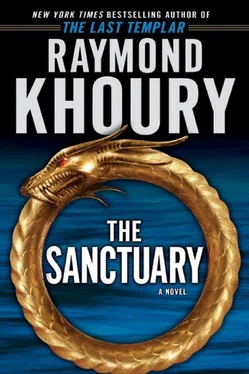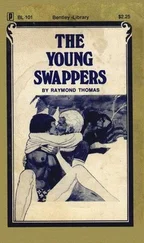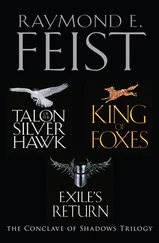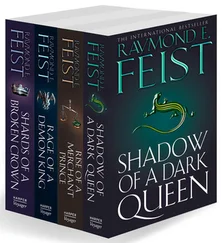Science and magic became indistinguishable.
And, as a result, science — serious science — floundered. This mind-set led to scientists working apart and not sharing their discoveries — or their failures. Even worse, it attracted quacks and charlatans, who dragged science further into disrepute. The allure of the ultimate chemical challenge — changing base metals into gold — became prevalent. It all spiraled out of control until two forces all but smothered science in Europe: the Roman emperor Diocletian’s fear of cheap gold undermining his rule, which led to his ordering the burning of all known writings of khemeia ; and the rise of Christianity, which ruthlessly stamped out heretical, pagan learning. The Christian Roman empire was thus cleansed of Greek learning. The East, however, would take up the mantle and run with it.
In the seventh century, armies of Arab tribes united and, driven by a new religion, emerged from the Arabian Peninsula and fanned out across Asia, Europe, and Africa. When they conquered Persia, they discovered the surviving remnants of Greek science. The writings intrigued them. Khemeia became al-kheemia , the Arabic prefix al meaning “the.” Fate had entrusted Greco-Egyptian alchemy to Arab scientists. It would remain in their care for the next five hundred years.
And they would serve it well, embracing the knowledge handed down to them and greatly advancing it.
That golden age would wither away under the invasions of the barbaric Mongols and Turks. Eventually, the Crusaders would bring the remnants of Arabic scientific knowledge back to Europe. The Christians of the Iberian Peninsula, in particular, would spearhead the return of the lost Greek knowledge back to its European home as they reclaimed the lands of Spain and Portugal from the Moors. Through the efforts of translators working in Toledo and in other centers of learning there, the scientific advances of the East would find a new life in the West.
Al-kheemia would become alchemy, and centuries later, it would take on the more respectable name of chemistry.
“These philosopher-scientists achieved great things in the field we now call chemistry,” Boustany informed her. “They created acids, mixed metals, and synthesized new substances. But one substance, in particular, was the most sought after for centuries.”
“Gold,” Mia said flatly.
“Of course. The tantalizing possibility of manufacturing gold never failed to seduce even the most levelheaded of these scientists. At some point in their careers, every one of them became obsessed with the one thing that their patrons, the caliphs and the imams, were most interested in: turning base metals into gold.”
Mia mulled his words. She’d skimmed a brief bio of Jabir ibn Hayyan — whom the Europeans would later refer to as Geber —at Corben’s apartment. His writings, cloaked in an unreadable code, were thought to be at the root of the term gibberish . He had been able to prepare strong acids, but he’d also worked extensively, and with success, on the transmutation of metals. Mia hadn’t given it much attention since, even if it were remotely possible, not that she thought it was, she didn’t think that it was, to use Corben’s pet adjective, relevant, given the discoveries in the hakeem’s lab.
“I don’t think that’s what this is about,” she said.
“Why not?”
“There’s something I haven’t mentioned,” she added somewhat hesitantly. “There’s a guy out there who we think may be behind all this. He…he was running some weird medical experiments.”
Boustany’s voice disappeared for a beat. “On humans?”
“Yep.”
Boustany went quiet, weighing her response. “So maybe this guy really is after the ikseer .”
“Again with the ikseer . What the hell are you talking about?”
“An obsession as old as time itself. The Epic of Gilgamesh , which is one of the oldest written stories in recorded history, is about this.” In the brief time she’d known him, the historian had developed this habit of teasing her. It was often endearing. Right now, she needed to know.
Boustany explained how for Avicenna and the other philosopher-scientists, the missing piece of the puzzle was the trigger, the catalyst that would stimulate the right mix of the base metals. Ancient tradition led them to believe the catalyst was a dry powder. The Greeks had called it xerion , which meant dry. The word became al-ikseer in Arabic. Hundreds of years later, the Europeans would refer to the undiscovered al-ikseer as the elixir . And, since scientists of the era were referred to as philosophers, and because it was believed to come from the earth, it also became known as the philosopher’s stone.
“This mythical substance was believed to be so wondrous that these alchemists soon assigned other powers to it as well,” Boustany added. “Aside from being the catalyst that would help create untold wealth, they also attributed to it the power to heal all illnesses. Eventually, conferring immortality was also believed to be within its powers. And so the notion of a potential al-ikseer of life —an elixir of life — took hold, and al-kheemia became a double-pronged quest for two intimately related goals: gold and eternal life.”
The two became intimately linked in the alchemists’ minds. Gold itself was incorruptible: It didn’t age. Some scientists even found ways to ingest it as an elixir itself — usually in powdered form — and gold became more sought after for its perceived antiaging powers than for its timeless beauty or for its monetary value.
The notion of an elixir of life, Boustany went on, embraced the archetypal theory of aging, blaming it on the loss of some kind of vital substance. That was why our bodies effectively shriveled up and shrank before ceasing to function altogether. The Taoists called this substance the ching and described it as the vital breath of life. Aristotle, Avicenna, and countless others since also thought the body, in aging, lost its “innate moisture.” The Viennese physician Eugen Steinach preached coitus reservatus to rejuvenate his patients — a method of preserving the vital fluid that we now call a vasectomy. Another surgeon, Serge Voronoff, believed that since reproductive cells didn’t age as badly as the other cells in the body, they had to contain some kind of antiaging hormone. In a misguided attempt to transfer more of that magical elixir back into the body, he grafted monkey testicles into his patients’ own testes with predictably dire results. Even the fervent belief in a rosy afterlife didn’t seem to deter the desperate pursuit of longevity: In the 1950s, the aging Pope Pius XII kept six personal physicians on hand at all times. A Swiss surgeon by the name of Paul Niehans injected him with the glands of lamb fetuses. Niehans’s impressive roster of clients at his clinic in Montreux, Switzerland, included kings and Hollywood stars.
“And so,” Boustany concluded, “over the ages, alchemists and quacks concocted all kinds of potions and elixirs, fountains of youth “that could replenish or replace this lost ‘essence’ of life. The hucksters’ wagons have since been replaced by the supplements aisles in supermarkets and by the Internet, the snake-oil salesmen by pseudoscientists touting hormones, minerals, and other miracle cures and promising to restore our bodies to their youthful vigor with little or no hard, scientific evidence — or a highly selective interpretation of scientific data — to back up their claims. But the quest is the same. It’s the final frontier, the only one left for us to conquer.”
Mia sighed glumly. “So I guess what we’re dealing with here is a madman.”
Читать дальше












